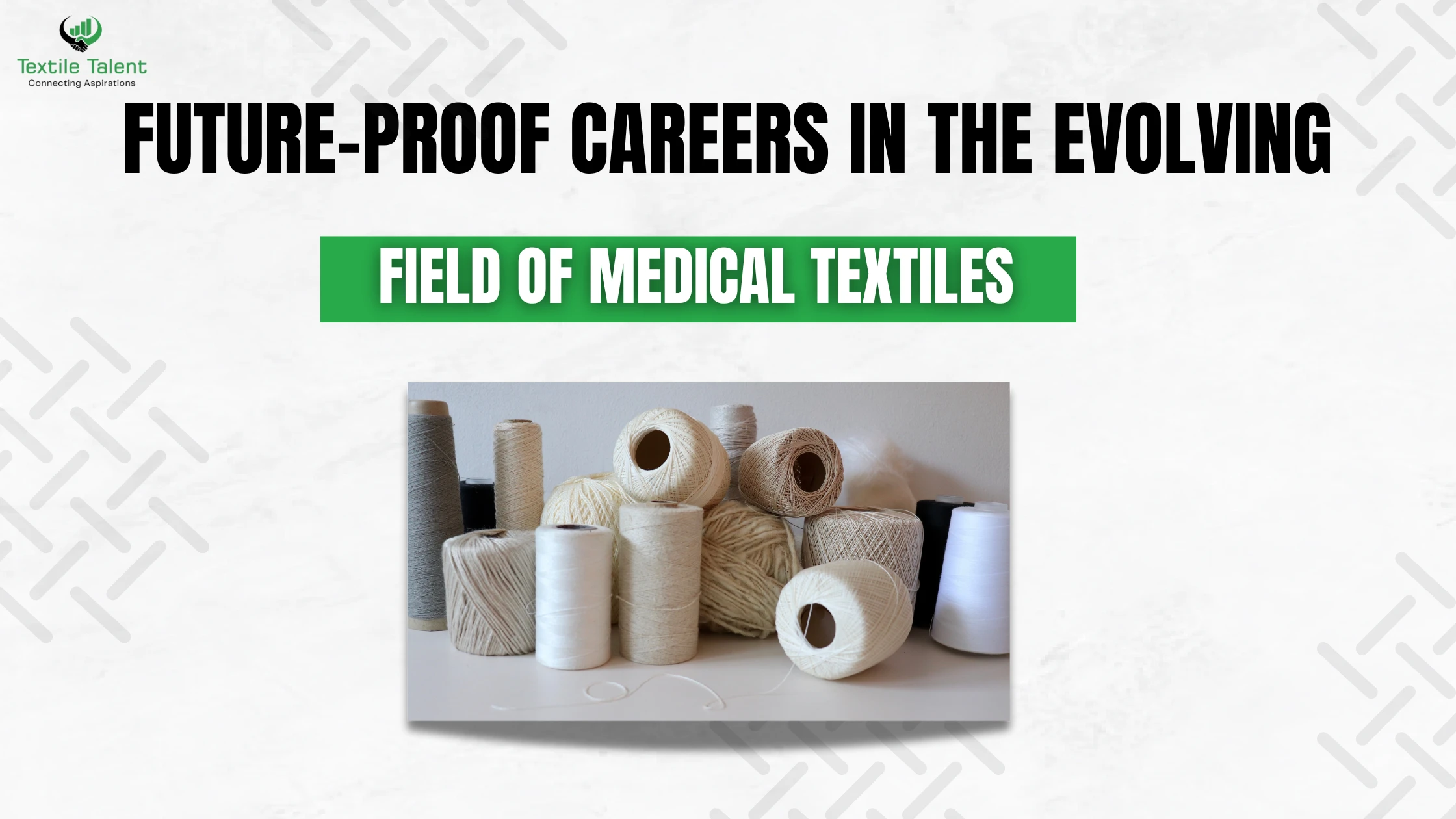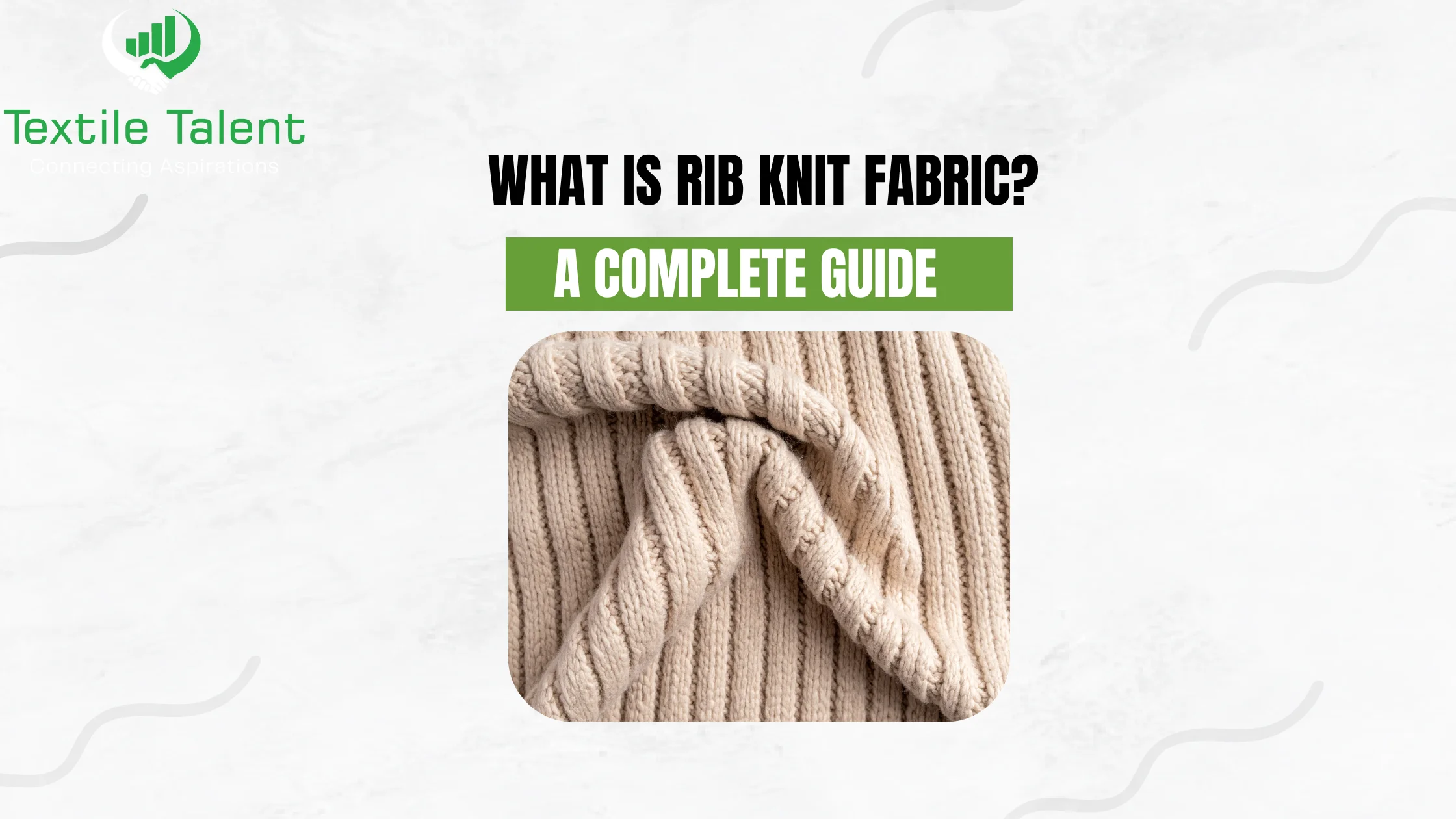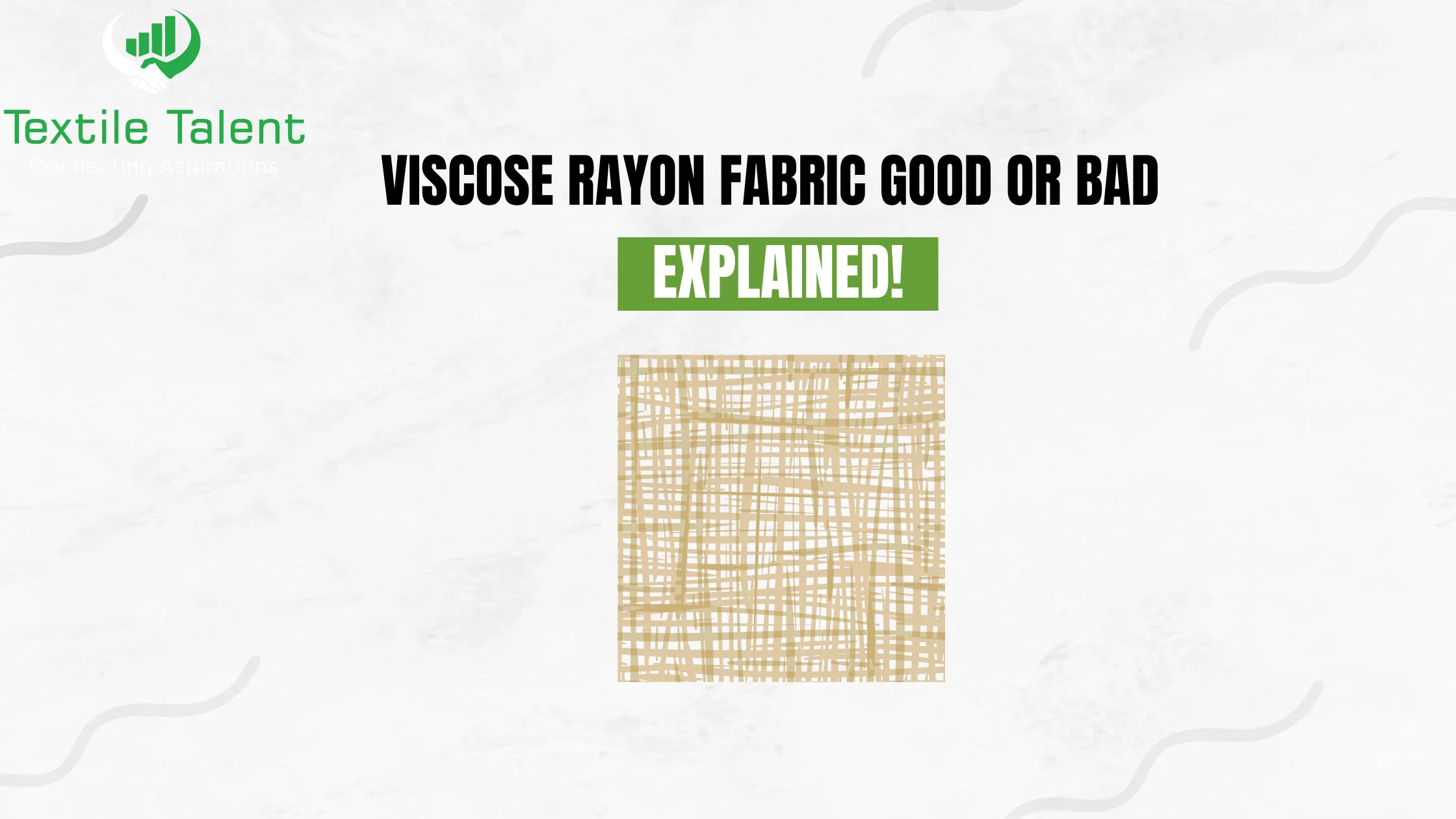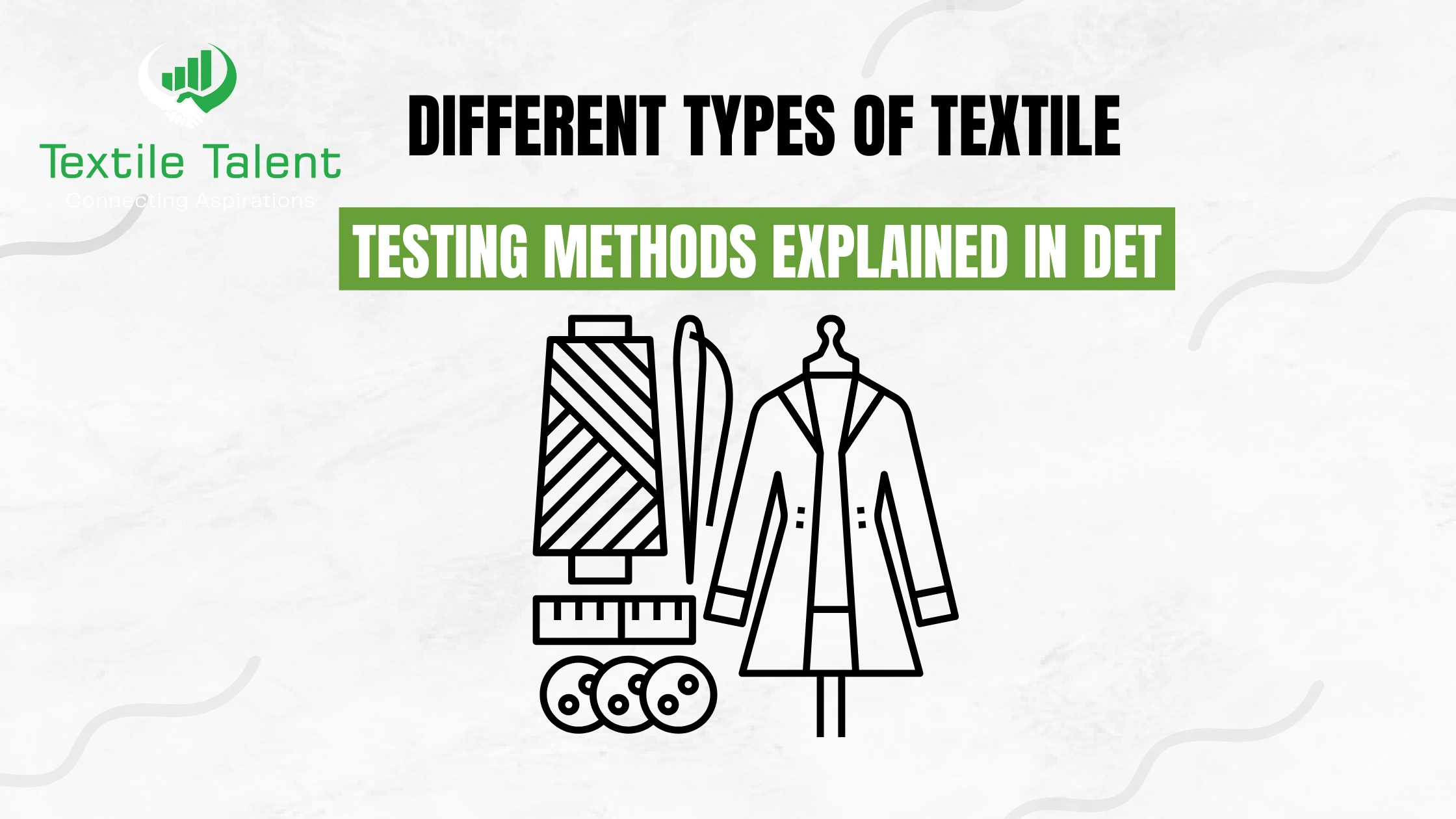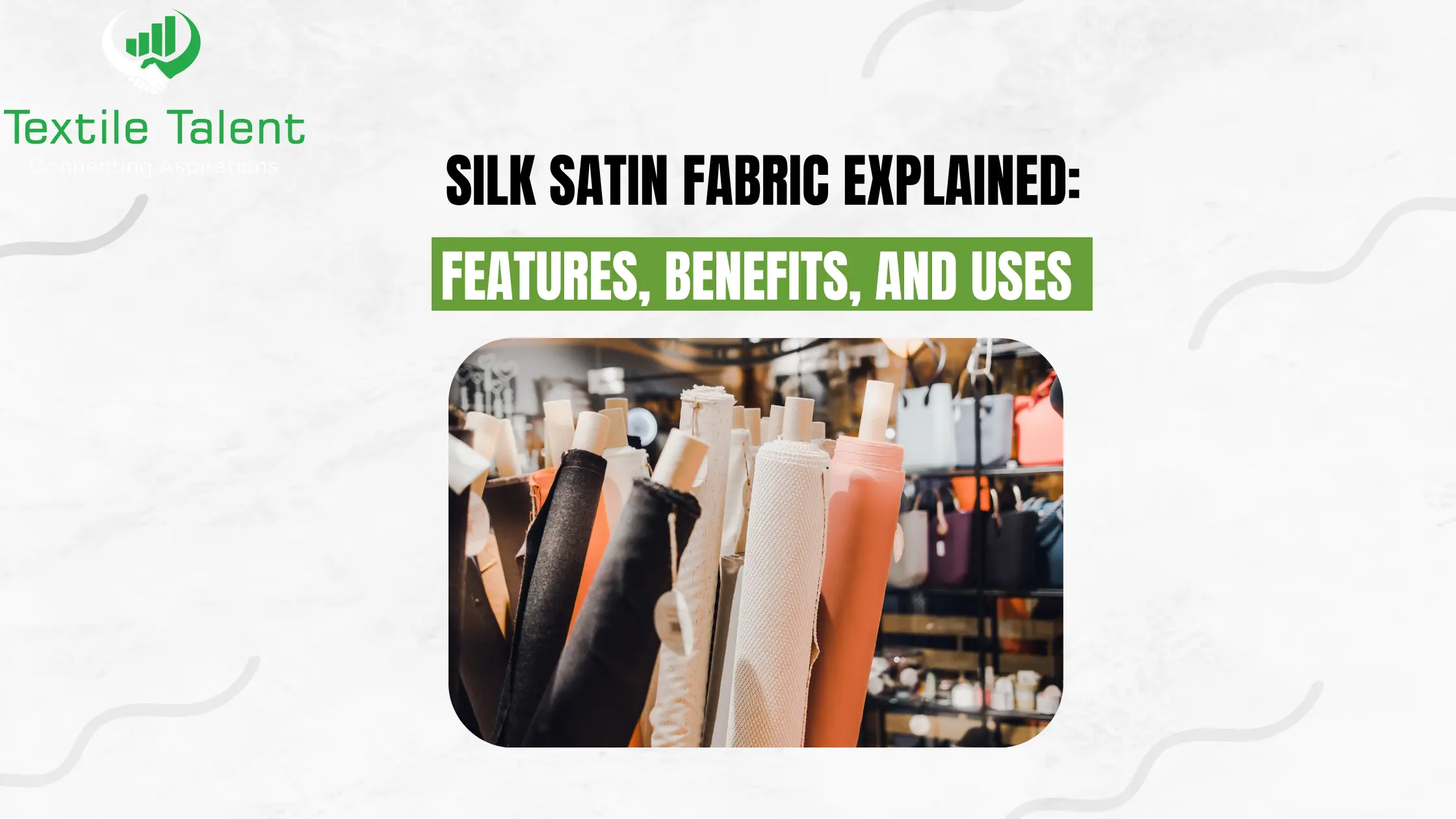
Summary
Medical textiles present a budding powerhouse in the textile industry, as well as the medical industry. Medical needs are on the increase and the technology in fabric is improving, thus it is opening up new, future-proof career options in this niche industry. Medical textiles provide an excellent opportunity whether you are a textile engineer, a student or an individual with an interest in changing careers to work in a developing industry. This article will discuss the field, the roles you can undertake as a career and the skills required as well as how you can pursue it.
What Are Medical Textiles and Why Are They Gaining Popularity?
Defining Medical Textiles and Their Role in Healthcare
Medical textiles can be defined as engineered fabrics that have been utilized in medical purposes such as wound dressing, surgical drapes, implants and hospital linen. They are functional as opposed to regular textiles and have been designed to be hygienic and compatible with human tissue. With the augmentment of health systems in the world, there has been increased demand in highly-sophisticated medical textile products.
How Medical Textiles Go Beyond Traditional Fabric Use
Threads are not the only thing about these textiles. They are able to track vitals, dispense medication or recovery tissue regeneration. Be it a breathable wound dressing or an intelligent hospital gown, textile engineering coupled with the medical sphere has brought about a revolution in the application of medical fabric in the hospital environment.
How Is the Job Market Evolving in the Textile Industry?
From Traditional Textiles to High-Tech Healthcare Applications
The textile industry is not only fashionable and home furnishing business. As technical textiles (particularly those in healthcare) begin to gain a foothold in the industry, businesses now require bioengineering, nanotechnology, and integration of smart fabrics. Medical textiles offer a lively and rapid-improving industry with secure job gains.
New Opportunities Emerging in Medical Textile Companies
Some of the medical textile companies are recruiting, textile technologists, product developers, R&D engineers, and regulatory officers. These are permanent jobs and they are less likely to be automated or outsourced hence very future-proof.
What Skills Are In Demand for Medical Textile Careers?
Core Technical Skills Employers Are Looking For
The individual who wants to get into this profession ought to know the properties of fibers, textile chemistry and medical compliance aspects. Skills on antimicrobial finishing, control of moisture and design of breathable fabrics are some of the skills that are of great priority in production of medical fabric.
Specialized Knowledge That Gives You an Edge
Knowing about fabrics used in hospitals, such as nonwoven polypropylene or silicone-coated textiles, can help you specialize. Medical textile companies also find candidates outstanding with credentials that include biomedical engineering courses or experience in lab testing.
What Types of Fabrics Are Commonly Used in Hospitals?
Popular Fabrics That Power Medical Textile Products
Hospitals use a wide variety of medical fabrics like:
-
Nonwoven materials (used in surgical masks and gowns)
-
Cotton-polyester blends (for patient clothing and bedding)
-
PTFE and Silicone-based fabrics (for implantable medical devices)
These fabrics used in hospitals must be sterilizable, hypoallergenic, and resistant to wear and tear.
Why Fabric Choice Is Critical in Medical Settings
The appropriate fabric has the potential to minimize infection risks, increase comfort and heal the patient faster. To illustrate, antimicrobial treatment or moisture-absorbing material of medical textile products may make a big difference in healing or even the hygienic condition of hospitals.
Which Roles Are in Demand in Medical Textile Companies?
Top Career Opportunities in Medical Textile Production
Common roles for textile industry jobs in India companies in medical textile companies include:
-
Textile Engineers
-
R&D Specialists
-
Product Developers
-
Quality Assurance Managers
These professionals ensure that products meet medical-grade standards and perform effectively in clinical environments.
Emerging Careers in Smart and Sustainable Medical Textiles
As sustainability and digital health become more important, new roles are opening in areas like:
-
Smart wearable textile development
-
Eco-friendly medical fabric innovation
-
Data-driven product testing and compliance
These positions require both technical know-how and a passion for innovation in healthcare.
How Can Job Seekers Get Started in the Medical Textiles Field?
Education and Certifications That Can Help You Stand Out
To start a career in medical textiles, pursue degrees or certifications in:
-
Textile technology
-
Biomedical engineering
-
Material science
-
Technical textile certifications
Also, look for internships in medical textile companies or hospitals.
Practical Steps to Break into the Industry
Here’s how to take action:
-
Attend textile expos or healthcare innovation summits.
-
Build a portfolio if you’re into design or material R&D.
-
Learn about medical textile products regulations like FDA or CE certifications.
-
Connect with professionals via LinkedIn or textile career platforms.
Why Are Careers in Medical Textiles Considered Future-Proof?
Global Demand for Healthcare-Ready Fabrics Is Growing
The healthcare systems continue to expand, and the global healthcare issues become a greater concern, which means that the demands of medical textiles grow as well. The pandemic response to the treatment of an elderly person, there are few categories of quality medical fabric that is necessary in both hospitals and households.
Technology and Sustainability Are Shaping the Future
The use of smart technology (such as wound dressing sensors) and transition to using sustainable fabrics used in hospitals is a guarantee of long-term expansion. It implies that job seekers will be able to work on advanced solutions that really count- in terms of medicine and environment.
FAQ: Medical Textiles & Career Opportunities
1. What are medical textiles used for?
Medical textiles used in wound care, in surgery, implants, patient monitoring and hospital linens. They are designed to be high-hygienic, comfortable and socially medical.
2. What skills do I need for a job in medical textiles?
The most critical ones are in the field of textile chemistry, awareness of antimicrobial goods and materials, knowing about regulations and being aware of medical fabric technologies.
3. What companies work with medical textiles?
A large number of medical textile companies work with disposable drugs, implantable fabrics, or intelligent wearable. These consist of global and niche startups producers of biomedical textiles
4. Which fabrics are used in hospitals most commonly?
Fabrics used in hospitals are nonwoven polypropylene (disposables), cotton polyester combinations (bedding, gowns) and high performance synthetics (implants, advanced wound care).
5. How do I get started in a medical textiles career?
One of the first steps you can take is to receive a corresponding degree or certification, submit internship programs in a company dealing with medicine or technical textile, and join the healthcare textile sphere.

